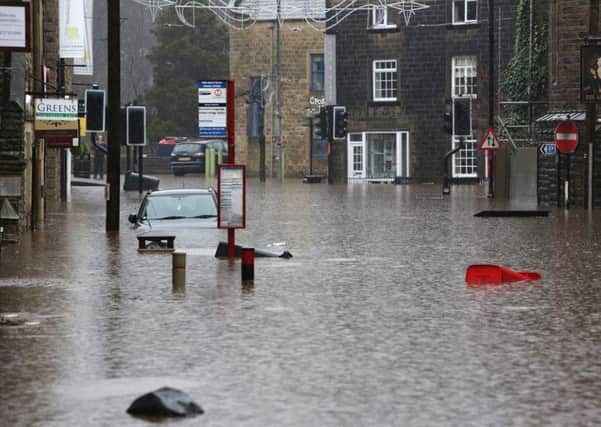Yorkshire floods: Why CAN'T we plan ahead?


In the wake of winter floods which racked up a £1.3bn insurance bill, many businesses in affected areas are now unable to get any insurance cover or face massively inflated premiums.
And the same communities are vulnerable to more pain because of the declining condition of flood defences; due to cuts in maintenance spending, at a time when the country faces more frequent and intense flooding.
Advertisement
Hide AdAdvertisement
Hide AdThe warnings in the parliamentary Environmental Audit Committee’s report follow storms in December and January that caused severe floods in the north of England, Wales and parts of Scotland and Northern Ireland.
York’s Foss Barrier, which was opened and caused 600 homes to flood when it was overwhelmed by flood water, is a cautionary example of what can happen when ageing defences fail, MPs said.
Many areas of Yorkshire suffered flooding, with those in Leeds described by MPs as the worst to hit the city since 1866.
Ultimately, their report says the Government is too reactive to flood management. Defence funding was cut in the last Parliament and was only increased after the floods in winter 2013/14.
Advertisement
Hide AdAdvertisement
Hide AdThe Government has said it will spend £2.3bn on new defences and will protect defence maintenance funding, but the MPs are “sceptical” that it will meet its target of protecting 300,000 properties as this assumed the greatest efficiency in spending decisions.
And they added that an extra £700m for flood defences announced in the Budget risks being used inefficiently as it was based on a “political calculation”.
Wakefield’s Labour MP, Mary Creagh, the committee’s chairman, said flood-risk communities “deserve certainty”, adding: “We know that flooding is projected to get worse and occur more frequently because of climate change, so it just isn’t good enough for government to react to flooding events as they occur.”
The report also warned that local councils are not getting enough support to develop plans to deal with flooding, and important infrastructure was not protected to a consistent standard.
Advertisement
Hide AdAdvertisement
Hide AdPeter Box, chairman of the West Yorkshire Combined Authority, said councils need better support from government and helpful new measure he said would include locally devolved flood defence funding, incentives for private sector investment in defences and mandatory flood-proof requirements for new homes and offices.
The Department for the Environment, Food and Rural Affairs said its six-year capital investment programme for flood defences will end year-on-year fluctuations in spending; a National Flood Resilience Review detailing actions to protect communities before the winter will be published soon, followed by a 25-year environment plan setting out “a new approach to managing our rivers across whole catchments”.